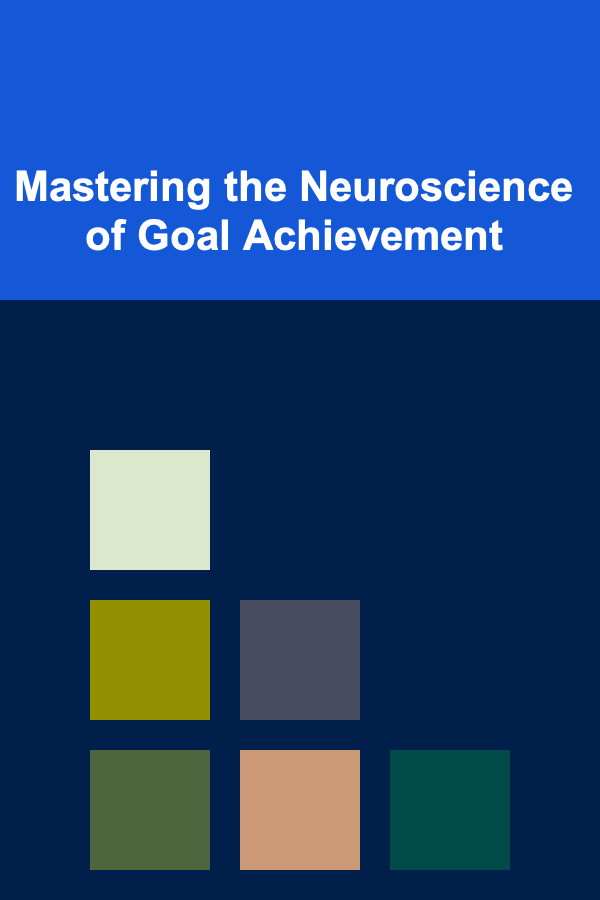
How To Live a Life of Intellectual Curiosity
ebook include PDF & Audio bundle (Micro Guide)
$12.99$10.99
Limited Time Offer! Order within the next:

Intellectual curiosity is one of the most powerful forces driving human progress. It is the innate desire to learn, explore, and understand the world around us. While many individuals may naturally possess curiosity, cultivating it as a lifelong pursuit is not always an easy task. Intellectual curiosity demands both an openness to new ideas and a relentless drive to question, discover, and grow.
In this article, we will explore how to live a life fueled by intellectual curiosity, uncovering the practices, attitudes, and mindset shifts necessary to nurture this invaluable trait. From the importance of embracing uncertainty to the benefits of engaging in continuous learning, we'll explore practical ways to infuse curiosity into everyday life.
The Power of Intellectual Curiosity
Intellectual curiosity is the key to personal growth, and it directly correlates with a greater understanding of the world. It opens doors to new experiences and helps develop critical thinking skills, creativity, and problem-solving abilities. Curiosity pushes you to dig deeper, ask more profound questions, and seek connections between seemingly unrelated ideas.
Why It's Crucial
In an age where information is abundant and constantly changing, being intellectually curious allows you to adapt, innovate, and thrive. Whether it's learning a new skill, exploring a foreign culture, or gaining a better understanding of human nature, intellectual curiosity helps you stay relevant, balanced, and engaged in a rapidly evolving world.
Moreover, intellectual curiosity improves mental health by providing a sense of purpose. It brings meaning and satisfaction by offering new ways to see the world and challenges you to see things from different perspectives.
The Mindset of a Lifelong Learner
To live a life of intellectual curiosity, one must adopt the mindset of a lifelong learner. This mindset is built upon several core principles, each of which can transform the way you approach the world.
1. Embrace Uncertainty
Intellectual curiosity thrives in an environment where uncertainty is welcomed. Too often, people seek certainty to feel comfortable and secure, but curiosity flourishes when we challenge our preconceived notions. Embrace the unknown and allow yourself to explore areas where you have limited knowledge.
Practical Steps:
- Start by acknowledging that you don't have all the answers.
- See ambiguity as a tool for learning and growth rather than something to avoid.
- Ask yourself, "What don't I know?" and be open to discovering new insights.
2. Cultivate a Love for Questions
Curiosity is not just about gathering information but also about asking meaningful questions. People who live intellectually curious lives are constantly questioning the status quo and the information they encounter. They ask "Why?" and "How?" and challenge assumptions.
Practical Steps:
- Regularly reflect on the things you read, hear, or see. Ask yourself deeper questions about them.
- Engage in conversations that challenge your beliefs and require critical thinking.
- Don't be afraid to ask questions, no matter how trivial they might seem. Every question has the potential to spark a deeper understanding.
3. Value the Process, Not Just the Answer
Curiosity is often seen as a quest for answers, but it's just as much about enjoying the journey. The process of exploring new ideas and engaging with different perspectives can be more enriching than finding a concrete solution.
Practical Steps:
- Focus on learning and exploring rather than rushing to conclusions.
- Take time to savor the insights you uncover, even if they lead to more questions.
- See every learning experience as part of a larger, ongoing process.
Practices to Foster Intellectual Curiosity
Living a life of intellectual curiosity requires more than just adopting a mindset---it involves taking consistent actions that nurture your intellectual growth. Here are some key practices that can help you become a more curious and engaged learner.
1. Develop a Reading Habit
Reading is one of the most effective ways to broaden your intellectual horizons. By immersing yourself in books, articles, and papers on a variety of subjects, you expose yourself to new ideas, viewpoints, and knowledge.
However, the key is to read widely and diversely. Instead of focusing solely on your area of expertise, challenge yourself to explore topics outside your comfort zone. This can open up new avenues of thought and spark your curiosity in unexpected ways.
Practical Steps:
- Dedicate a specific time each day to reading.
- Alternate between fiction and nonfiction to expand both your imaginative and analytical thinking.
- Keep a reading list that includes a mix of genres, authors, and disciplines.
2. Seek Diverse Perspectives
Intellectual curiosity is about exploring different viewpoints and challenging your own biases. Interacting with people from different backgrounds, cultures, and walks of life exposes you to new ideas that can shape and enrich your worldview.
Practical Steps:
- Engage in conversations with people who have differing opinions, backgrounds, and life experiences.
- Travel to new places and experience different cultures and ways of life.
- Participate in online forums or join discussion groups where a wide range of ideas are shared and debated.
3. Take up New Hobbies
Exploring new hobbies or interests can fuel intellectual curiosity by engaging different areas of your mind. Whether it's learning to play an instrument, studying a new language, or getting involved in a community activity, new hobbies encourage you to acquire new knowledge and skills.
Practical Steps:
- Identify a hobby or activity you've always wanted to try and commit to learning it.
- Join classes, workshops, or clubs where you can interact with others who share the same interest.
- Allow your hobbies to inspire new areas of study, inquiry, or creativity.
4. Experiment with New Ideas
Intellectual curiosity thrives on experimentation. By testing new theories, applying different problem-solving methods, or exploring novel approaches, you constantly push the boundaries of what you know.
Practical Steps:
- Use the scientific method of testing and observing to validate your ideas.
- Approach challenges as opportunities to experiment and learn.
- Embrace failure as part of the process, understanding that mistakes provide valuable lessons.
5. Engage in Continuous Learning
In today's world, learning doesn't stop after formal education. Intellectual curiosity thrives in environments where continuous learning is a norm. Whether through online courses, workshops, or self-study, make learning a lifelong pursuit.
Practical Steps:
- Identify areas of knowledge that you're interested in and commit to learning more about them regularly.
- Use resources like online courses, lectures, or podcasts to deepen your understanding.
- Set learning goals for yourself and track your progress.
Overcoming Challenges to Intellectual Curiosity
Living a life of intellectual curiosity is not without its challenges. There are various obstacles that may hinder your ability to remain curious and engaged, but understanding these barriers and knowing how to overcome them can keep you on track.
1. Overcoming Fear of Failure
One of the most common challenges is the fear of failure. The more you venture into new areas of learning, the more likely you are to encounter failure. But intellectual curiosity requires an acceptance of failure as part of the learning process. Instead of seeing failure as a setback, view it as an opportunity for growth.
Practical Steps:
- Reframe failure as feedback, rather than something to be avoided.
- Celebrate small successes along the way, even if the larger goal has not yet been achieved.
- Cultivate resilience by learning from setbacks and applying those lessons to future efforts.
2. Combatting Information Overload
In the digital age, we are constantly bombarded with information. With so much data available, it can be overwhelming to filter through it all and stay focused on the most valuable learning opportunities. To maintain intellectual curiosity, it's essential to manage this information overload effectively.
Practical Steps:
- Be selective about the sources of information you trust and engage with.
- Limit distractions and focus on one task or subject at a time.
- Prioritize deep learning over skimming or superficial browsing.
3. Overcoming Complacency
Another obstacle to intellectual curiosity is complacency. Once we feel that we have reached a certain level of competence or knowledge, it's easy to fall into the trap of intellectual stagnation. To overcome this, it's crucial to constantly challenge yourself and seek new intellectual territory.
Practical Steps:
- Set ambitious intellectual goals that stretch your abilities.
- Regularly review and reassess what you know to identify gaps or areas for further exploration.
- Stay humble about what you know and recognize that there's always more to learn.
The Benefits of a Life Driven by Curiosity
Living a life of intellectual curiosity offers many rewards. From enhanced personal fulfillment to improved problem-solving abilities, curiosity has far-reaching benefits that extend beyond the realm of knowledge.
1. Increased Creativity and Innovation
Curiosity breeds creativity. By constantly seeking new ideas, perspectives, and experiences, you increase your ability to think outside the box and come up with innovative solutions to problems.
2. Better Problem-Solving Skills
Curious individuals tend to approach problems with a more open mindset, allowing them to explore a wider range of solutions. Intellectual curiosity encourages experimentation and critical thinking, which enhances problem-solving abilities.
3. Deeper Emotional and Social Intelligence
Intellectual curiosity doesn't just benefit cognitive abilities; it also contributes to emotional and social intelligence. By seeking to understand different viewpoints and connecting with others in meaningful ways, you develop a deeper empathy and social awareness.
4. A More Fulfilled Life
At the heart of intellectual curiosity is the pursuit of meaning. As you continue to learn and explore new ideas, you cultivate a sense of purpose and satisfaction in life. Curiosity gives you the tools to pursue passions, find new interests, and live a life of continuous growth.
Conclusion
A life of intellectual curiosity is one of constant discovery, growth, and learning. It requires openness, resilience, and a willingness to question the world around us. By embracing uncertainty, asking meaningful questions, and engaging in continuous learning, we can live lives full of purpose, creativity, and fulfillment. The pursuit of knowledge is not a destination but a journey, and it is through this journey that we truly begin to understand ourselves and the world in which we live.

How to Make Money Online as a Technical Writer: 10 Actionable Ideas
Read More
How to Store Books and Magazines Without Taking Up Too Much Room
Read More
How to Use Technology to Stay Connected with Extended Family
Read More
How To Master 3D Printing for Cosplay and Props
Read More
How to Incorporate Mind-Body Therapies for Health
Read More
Mastering the Neuroscience of Goal Achievement
Read MoreOther Products

How to Make Money Online as a Technical Writer: 10 Actionable Ideas
Read More
How to Store Books and Magazines Without Taking Up Too Much Room
Read More
How to Use Technology to Stay Connected with Extended Family
Read More
How To Master 3D Printing for Cosplay and Props
Read More
How to Incorporate Mind-Body Therapies for Health
Read More